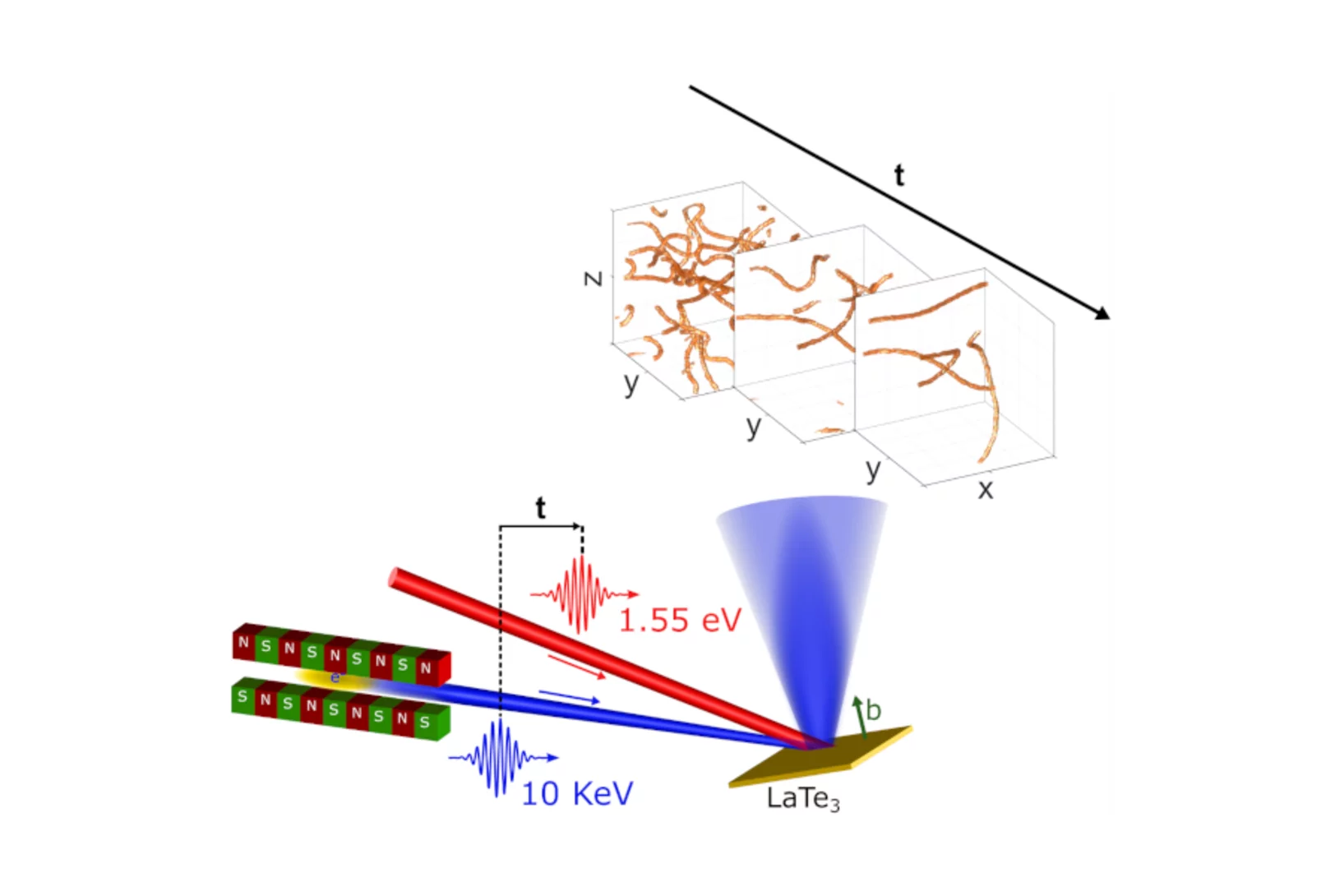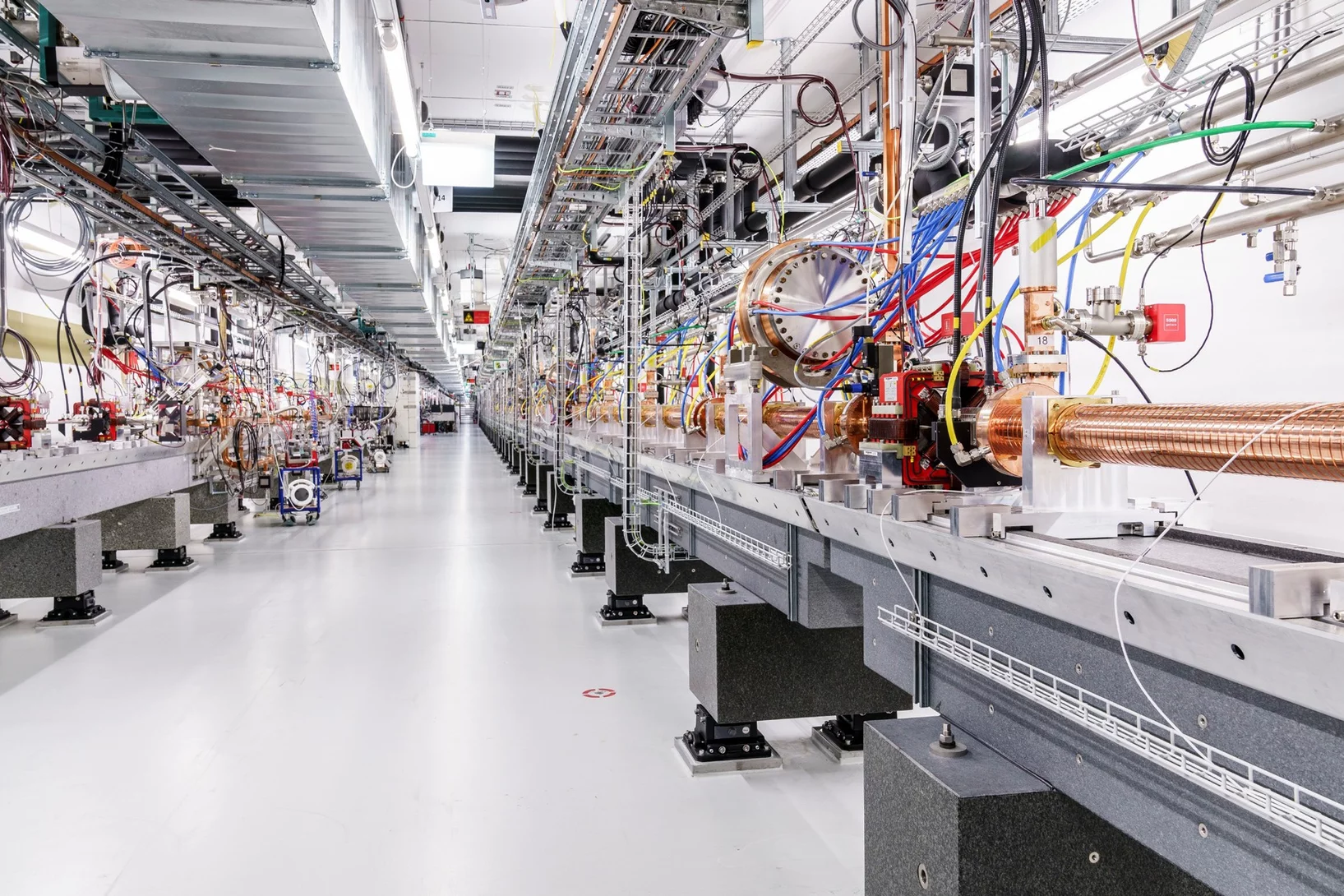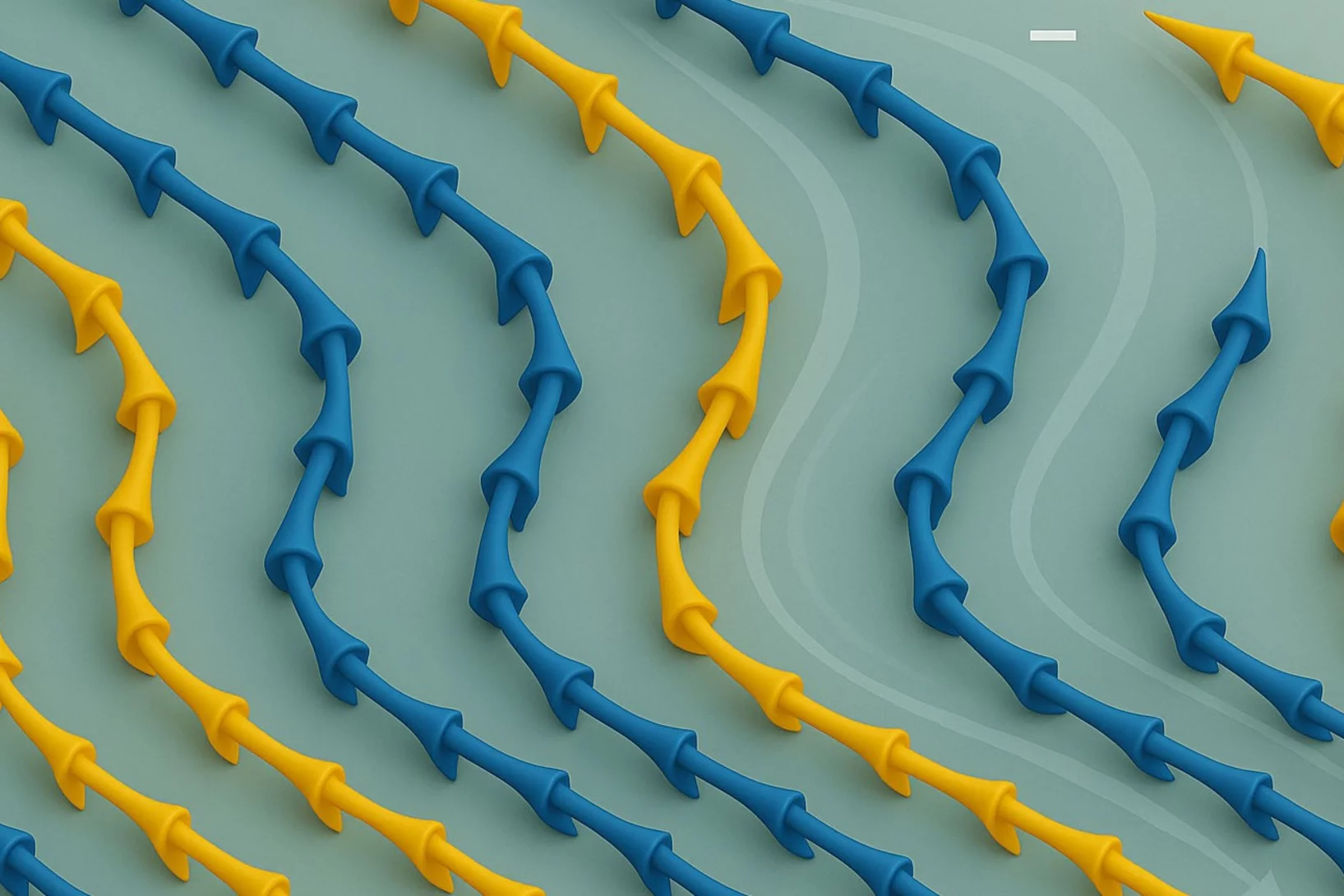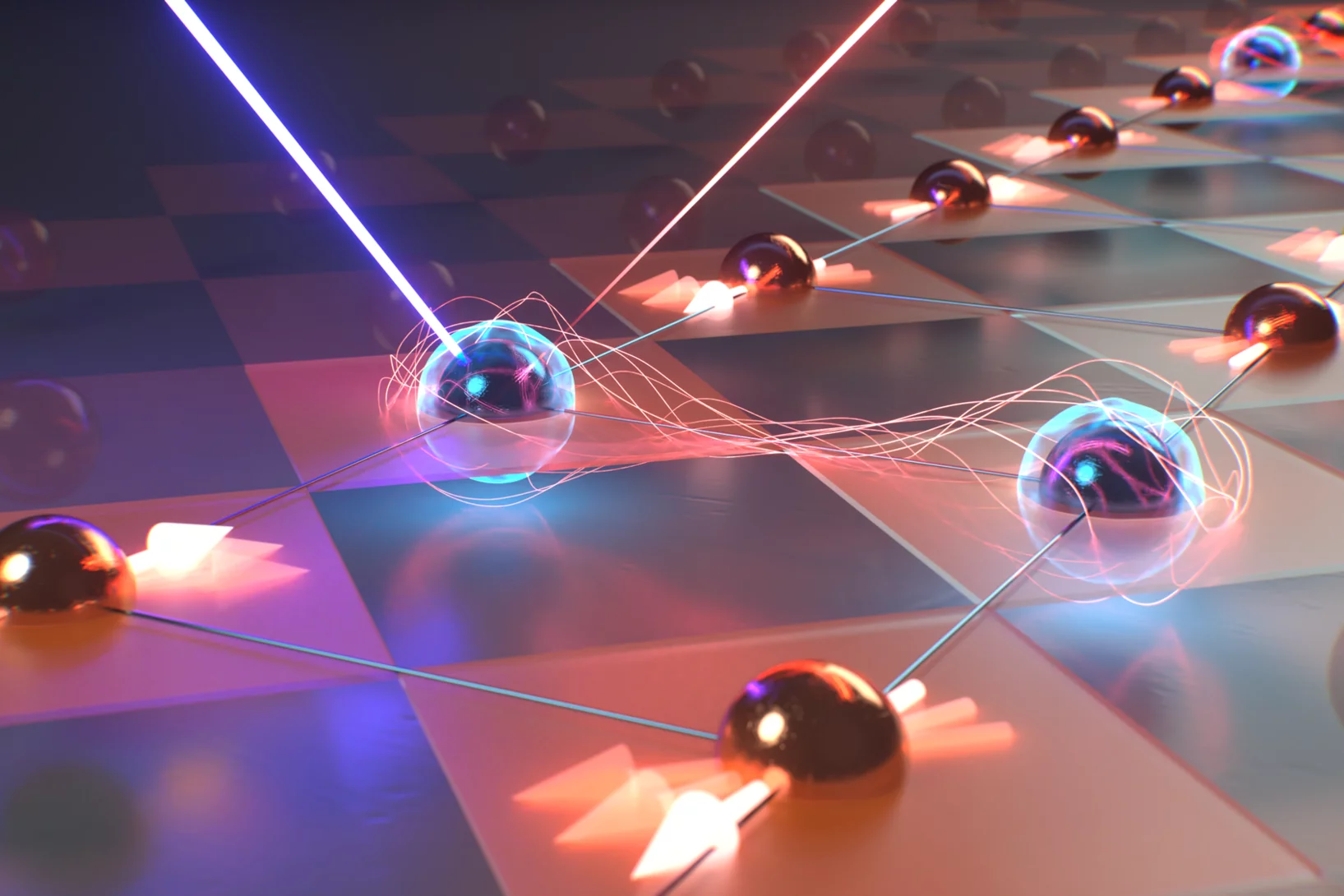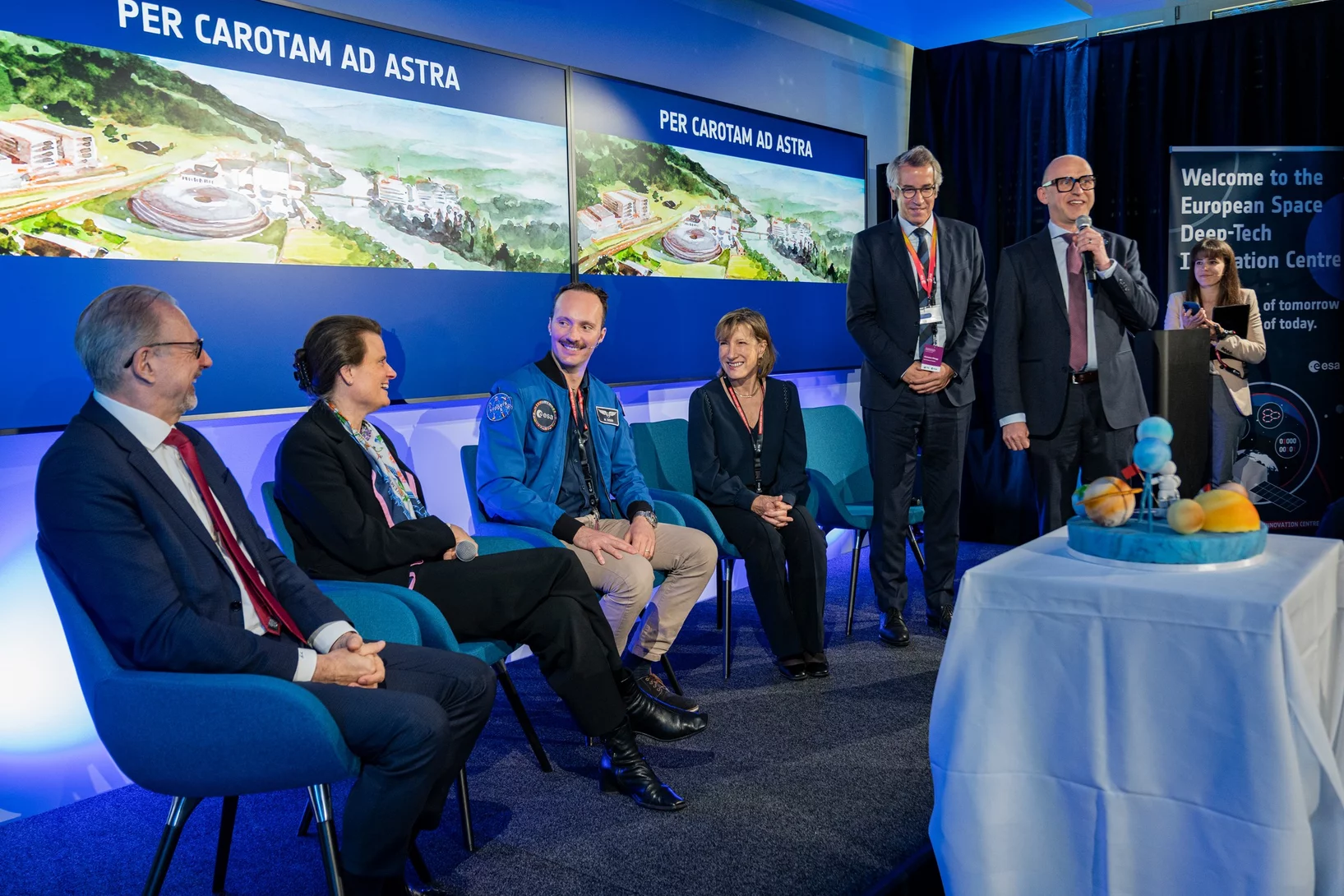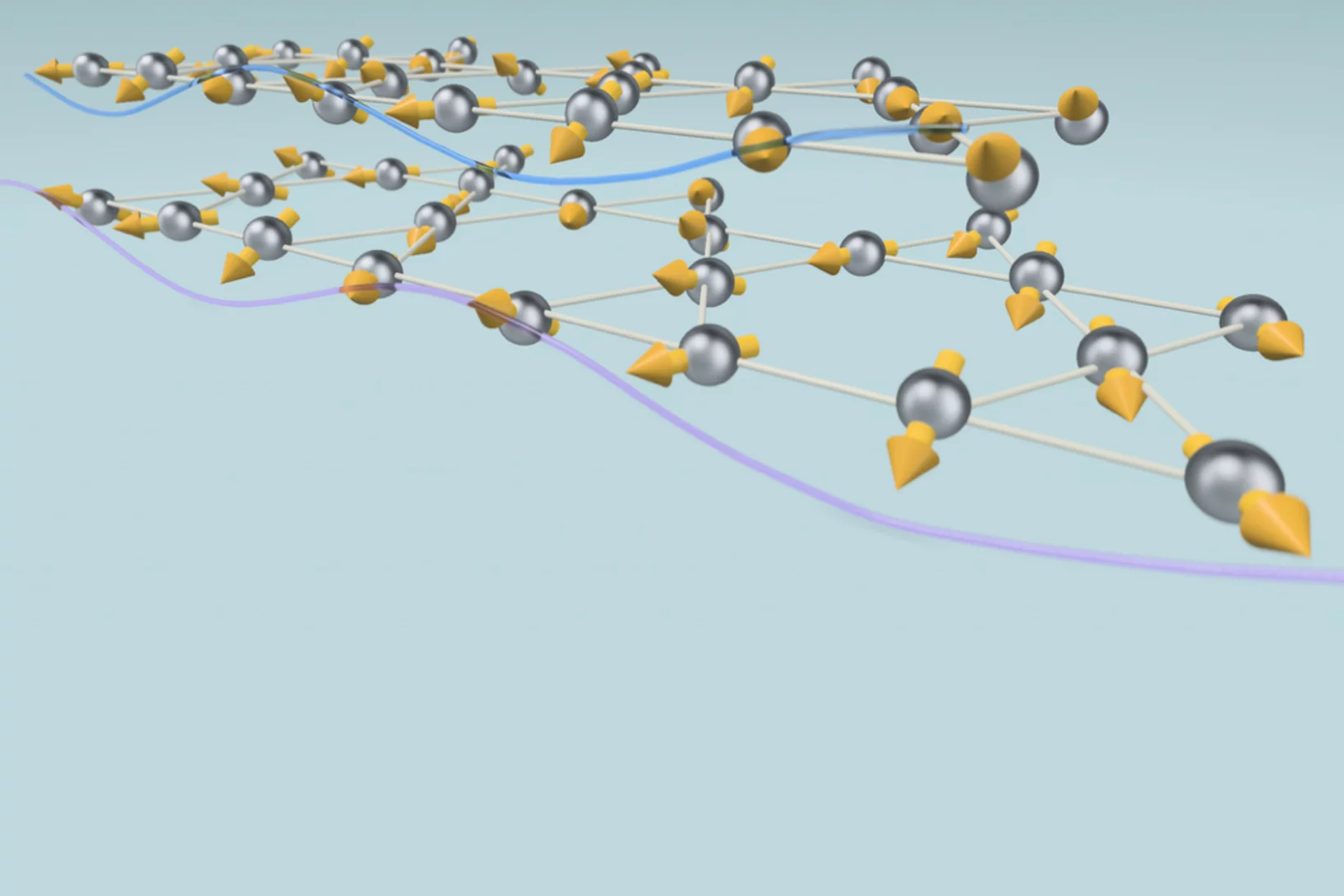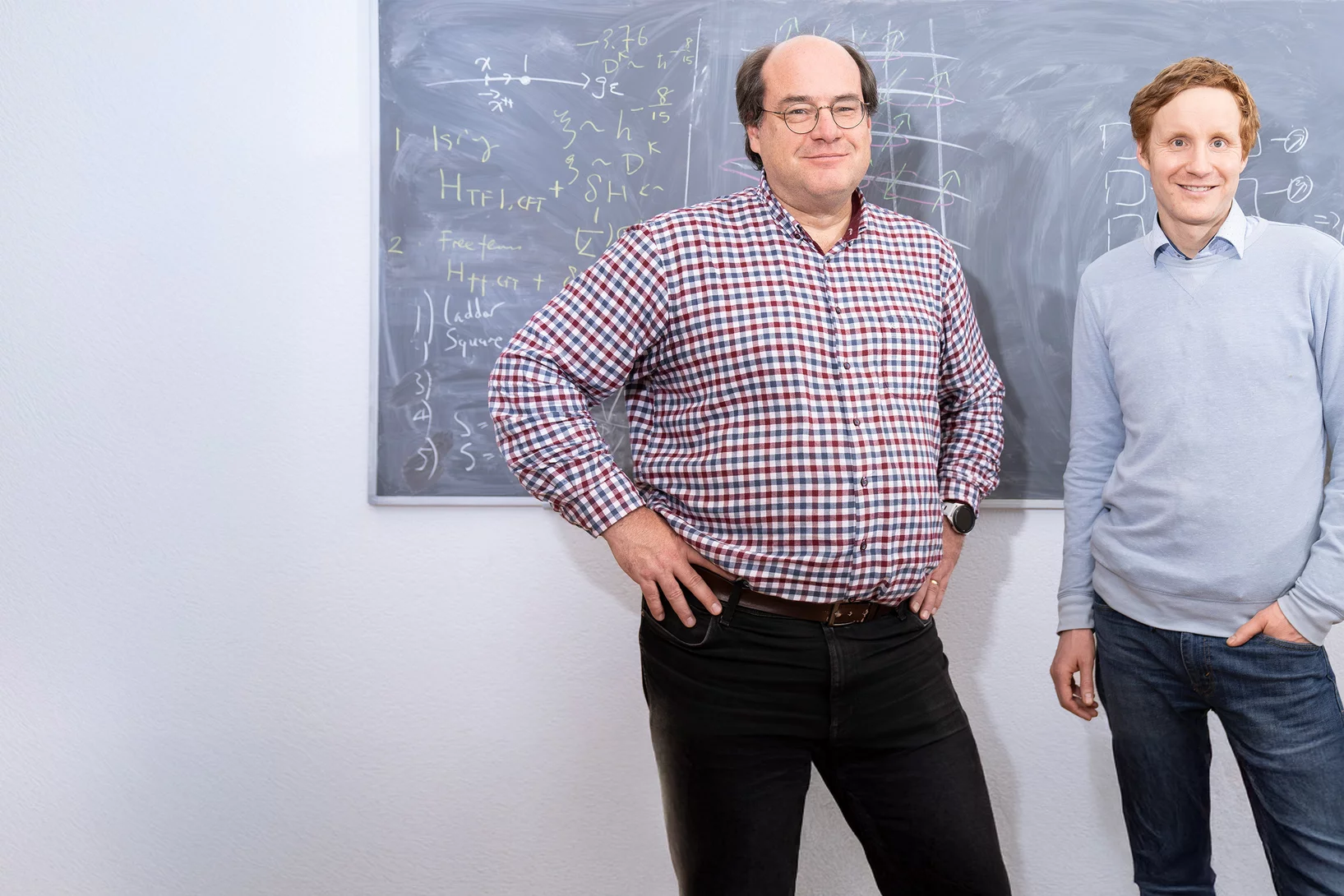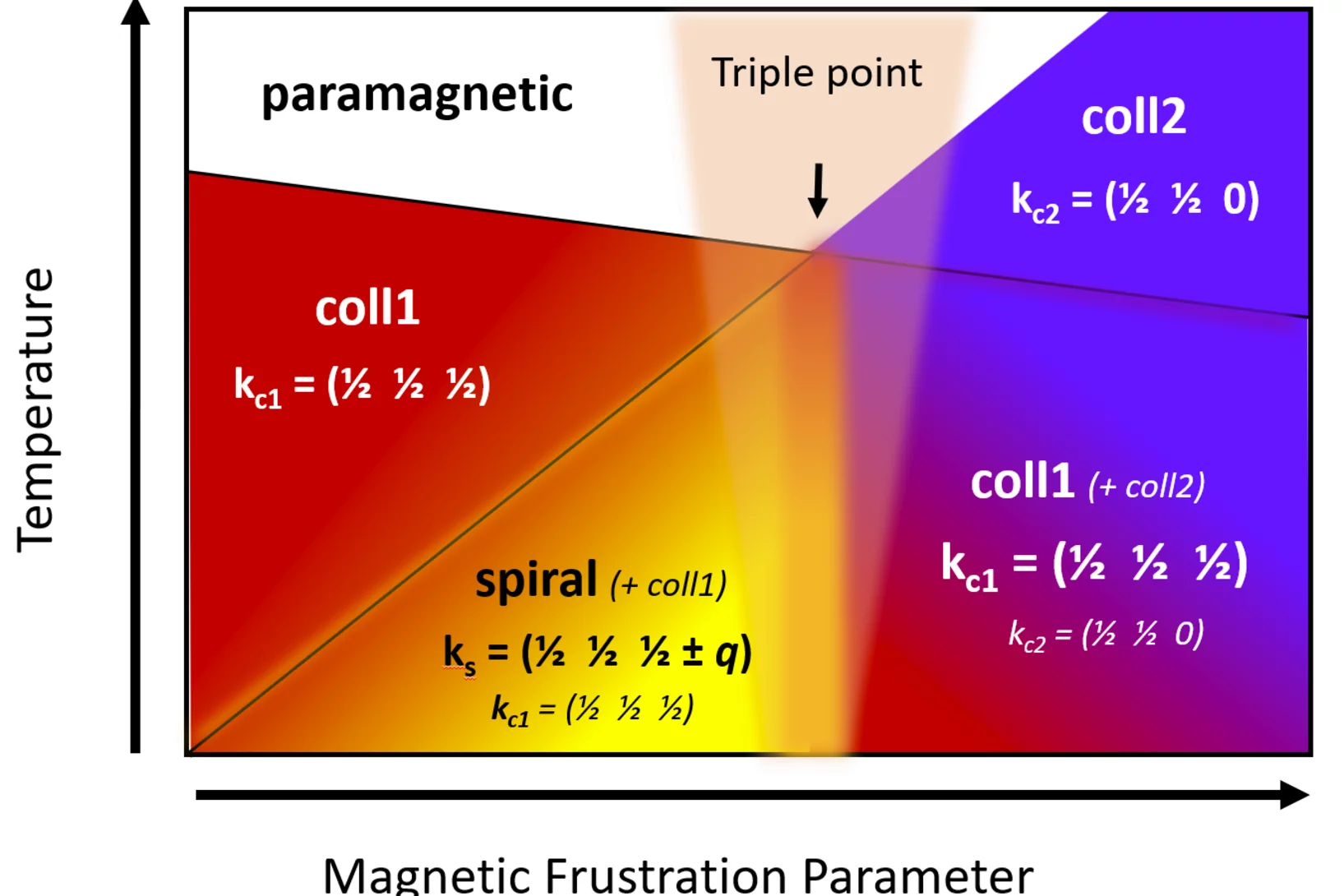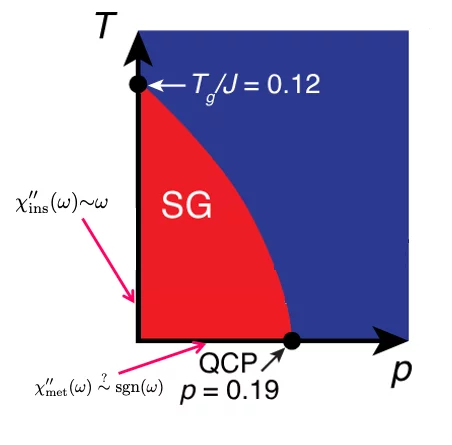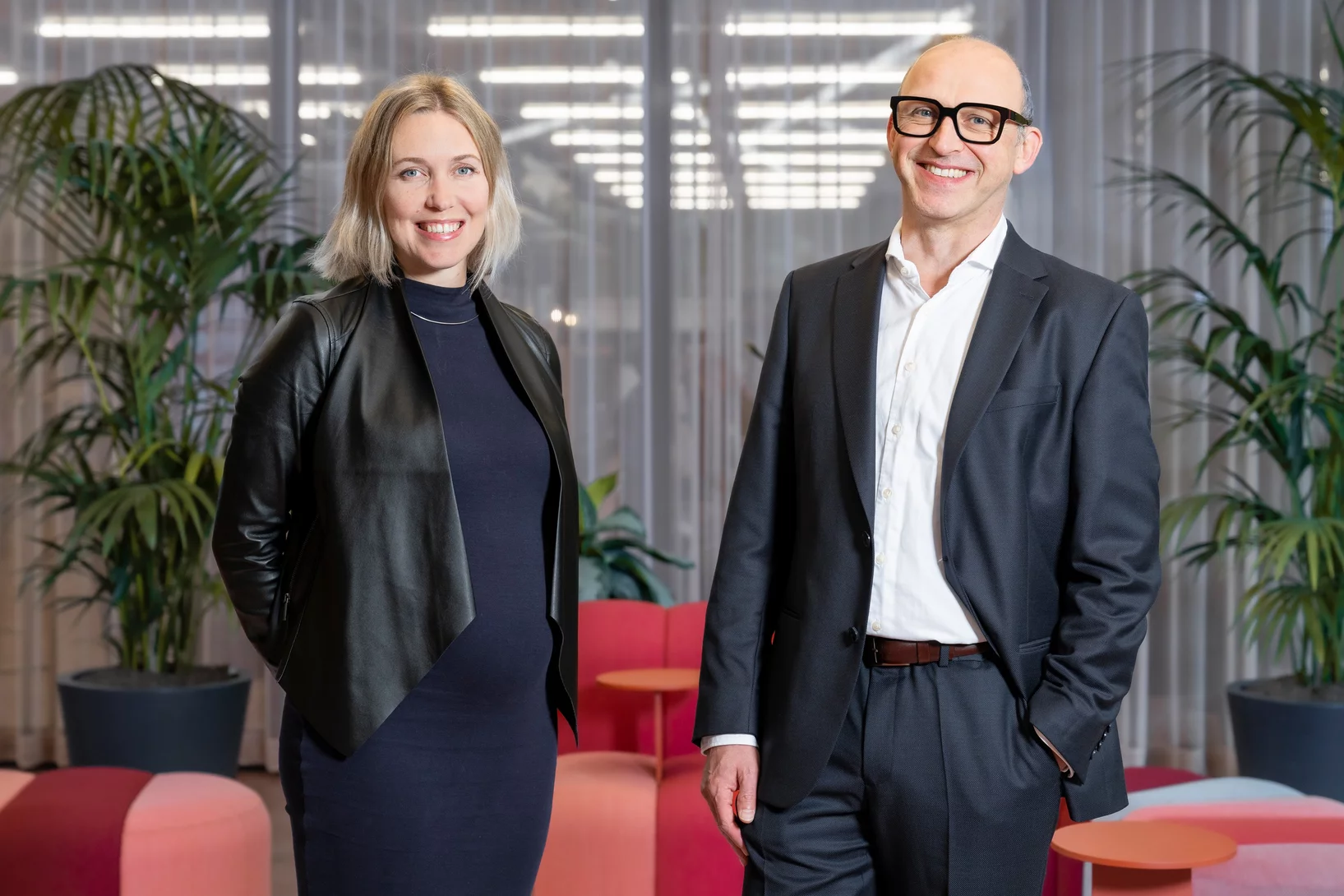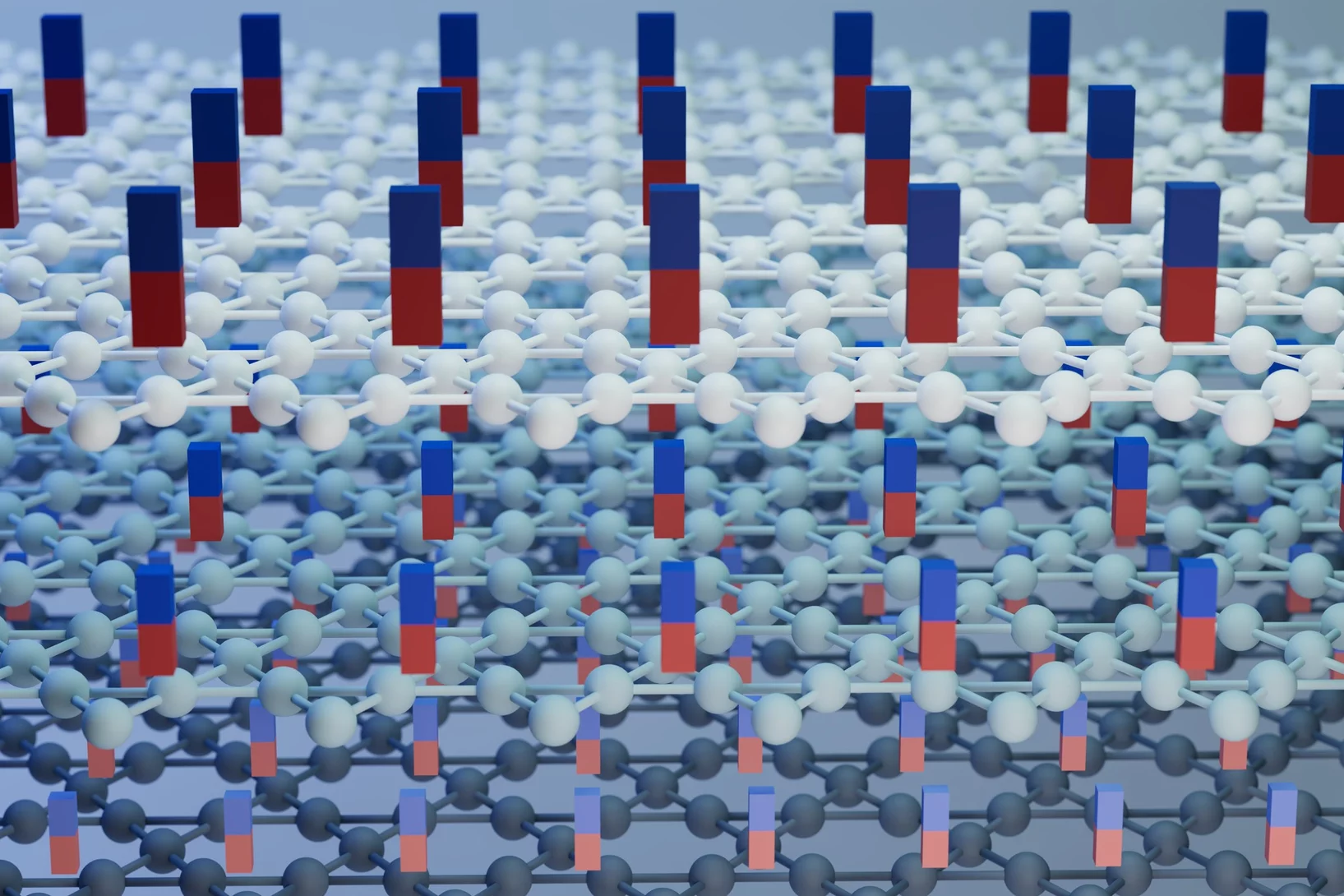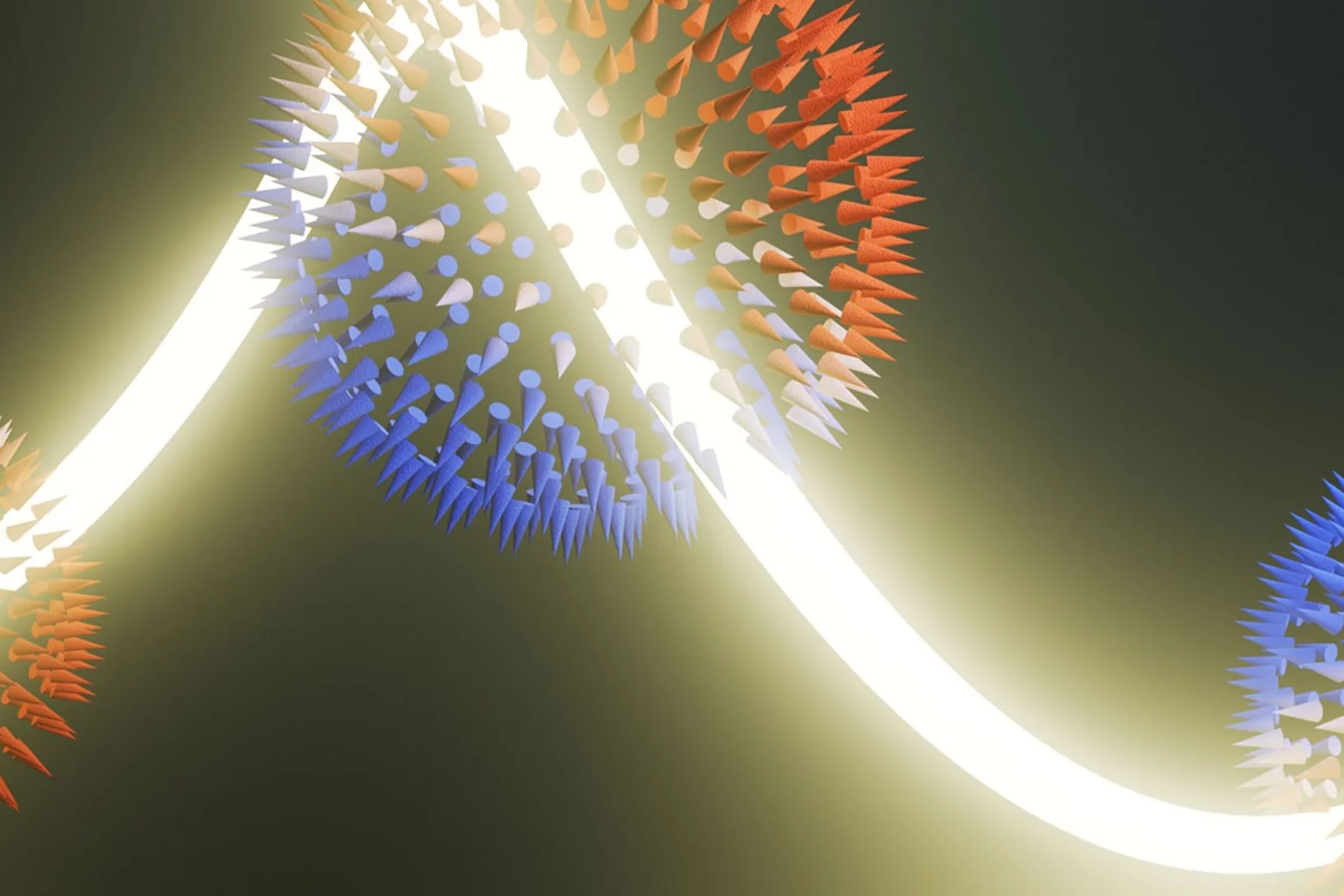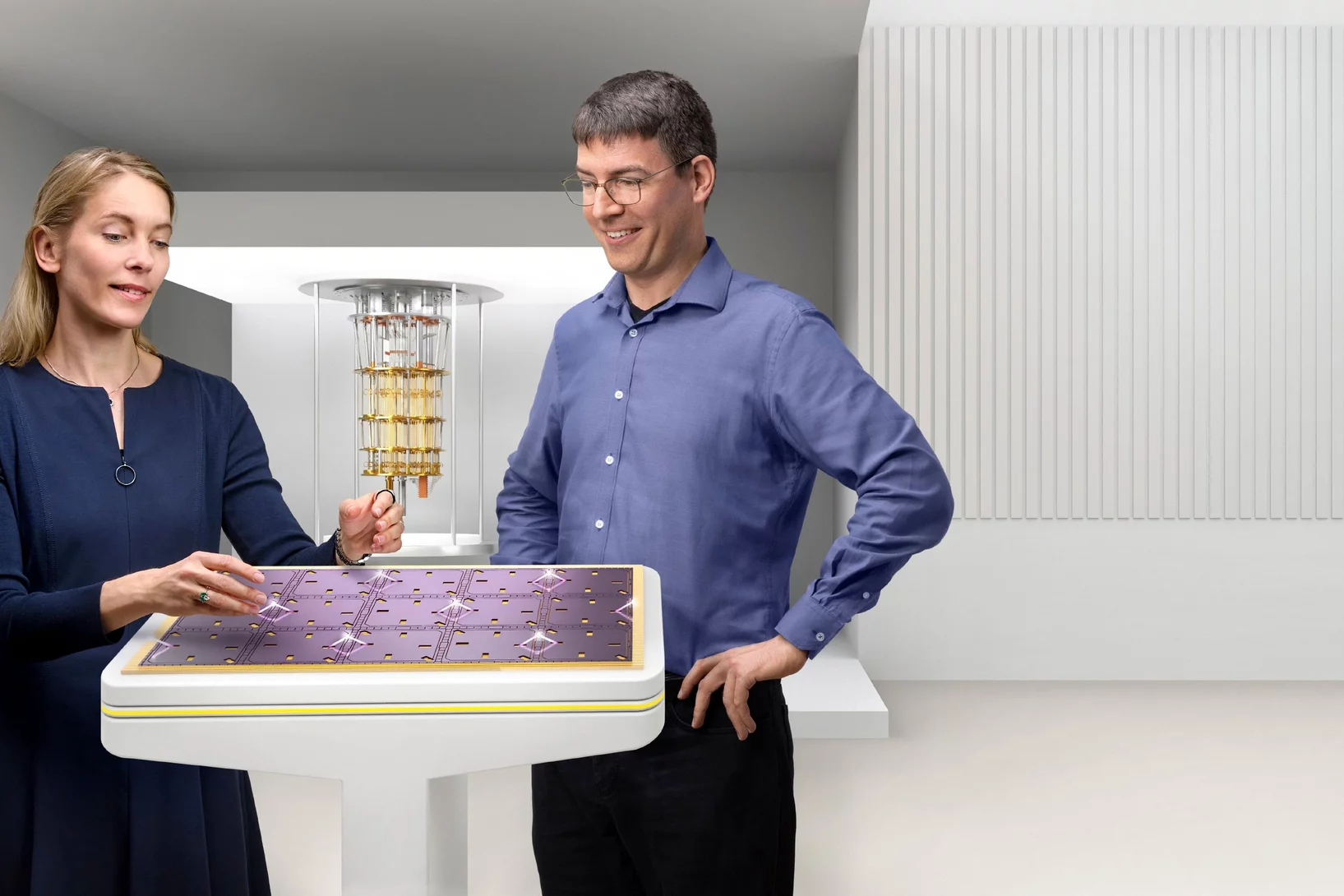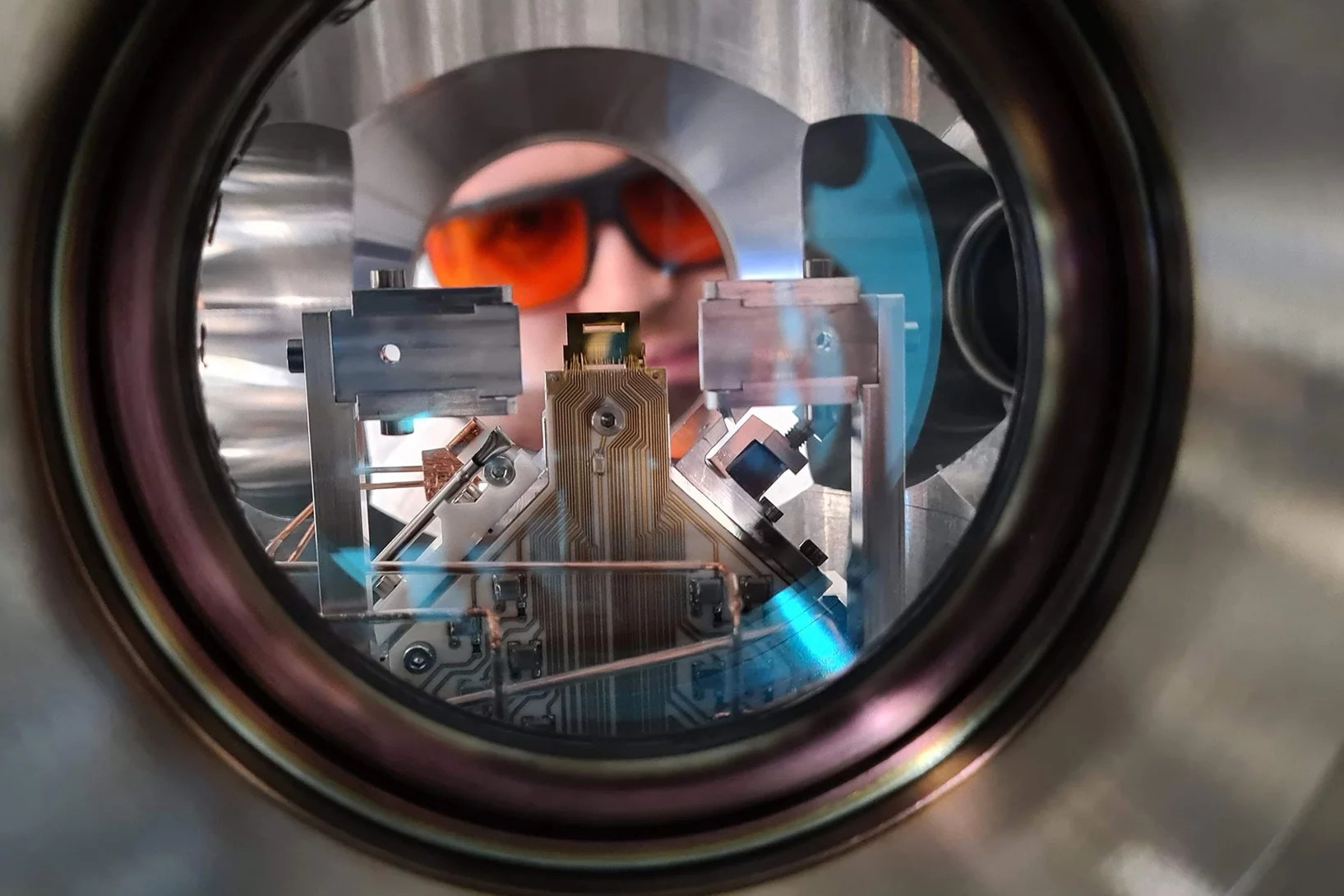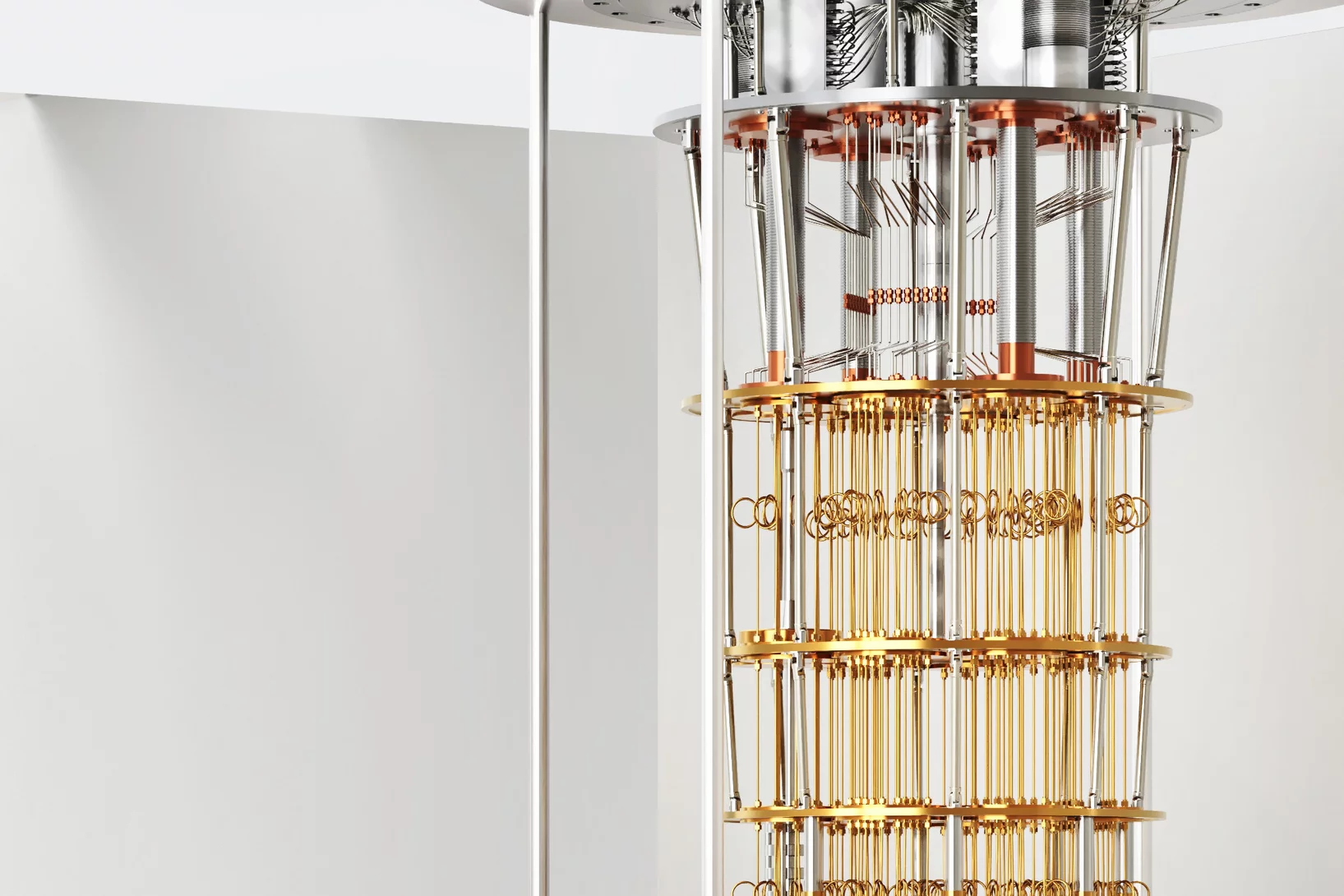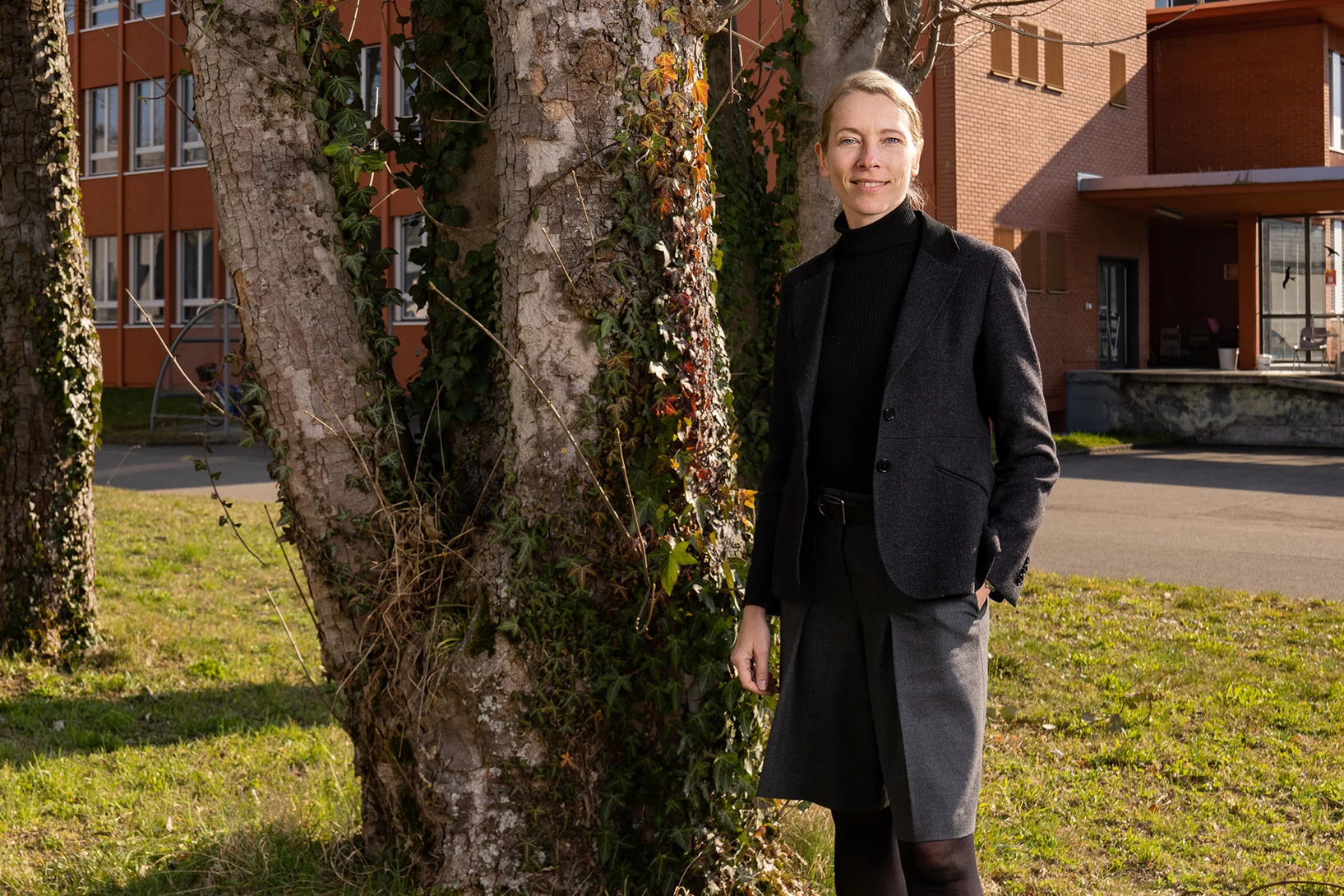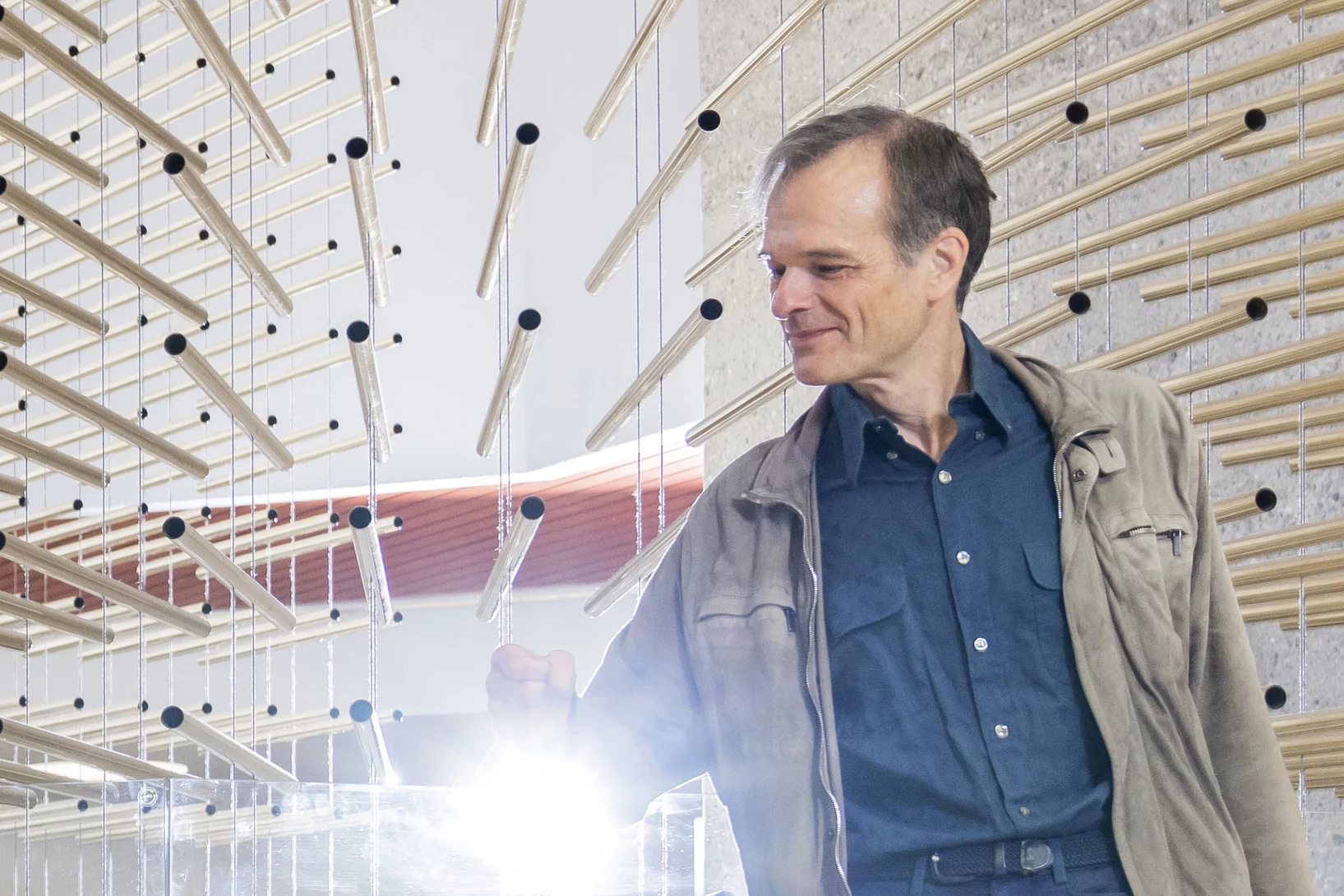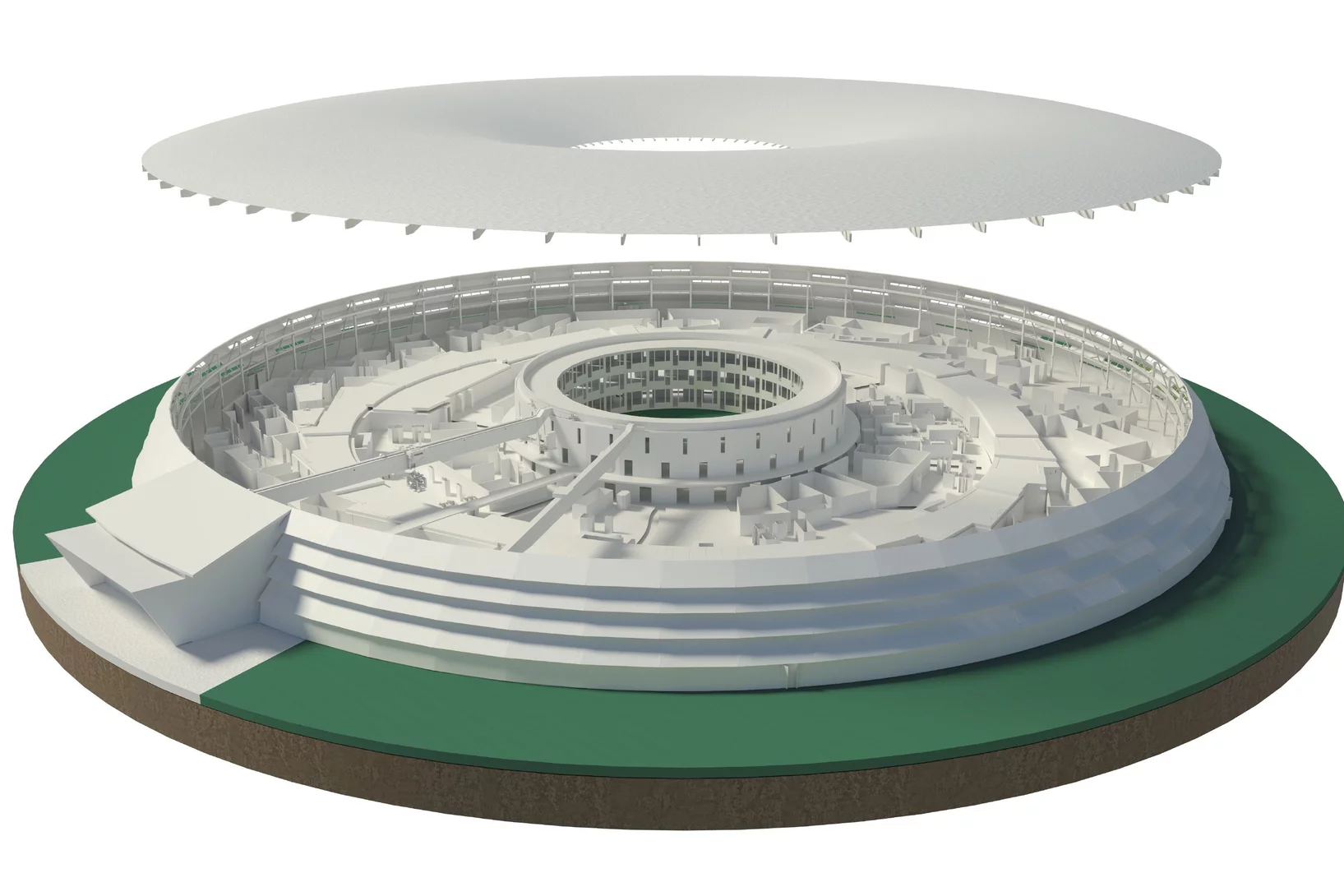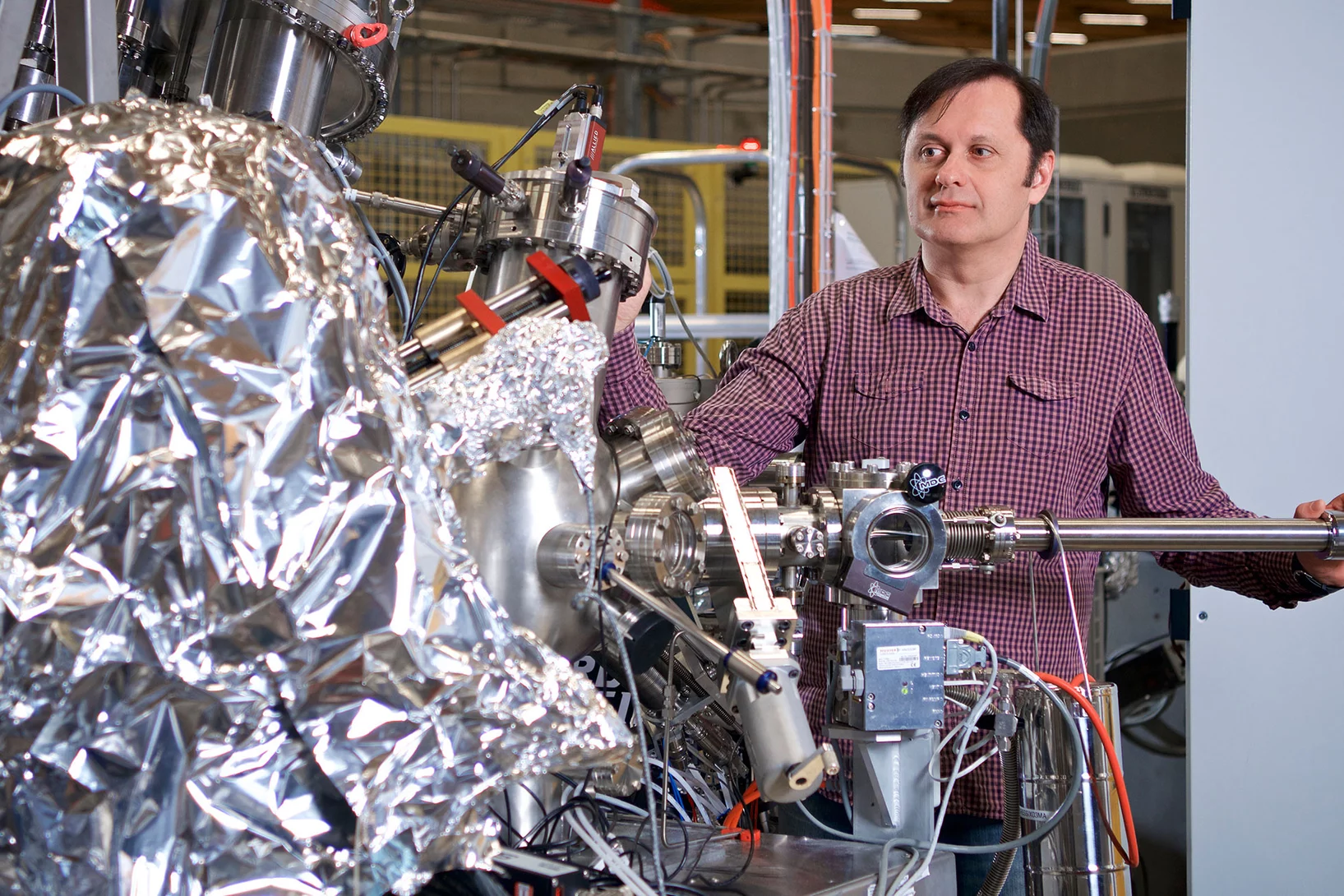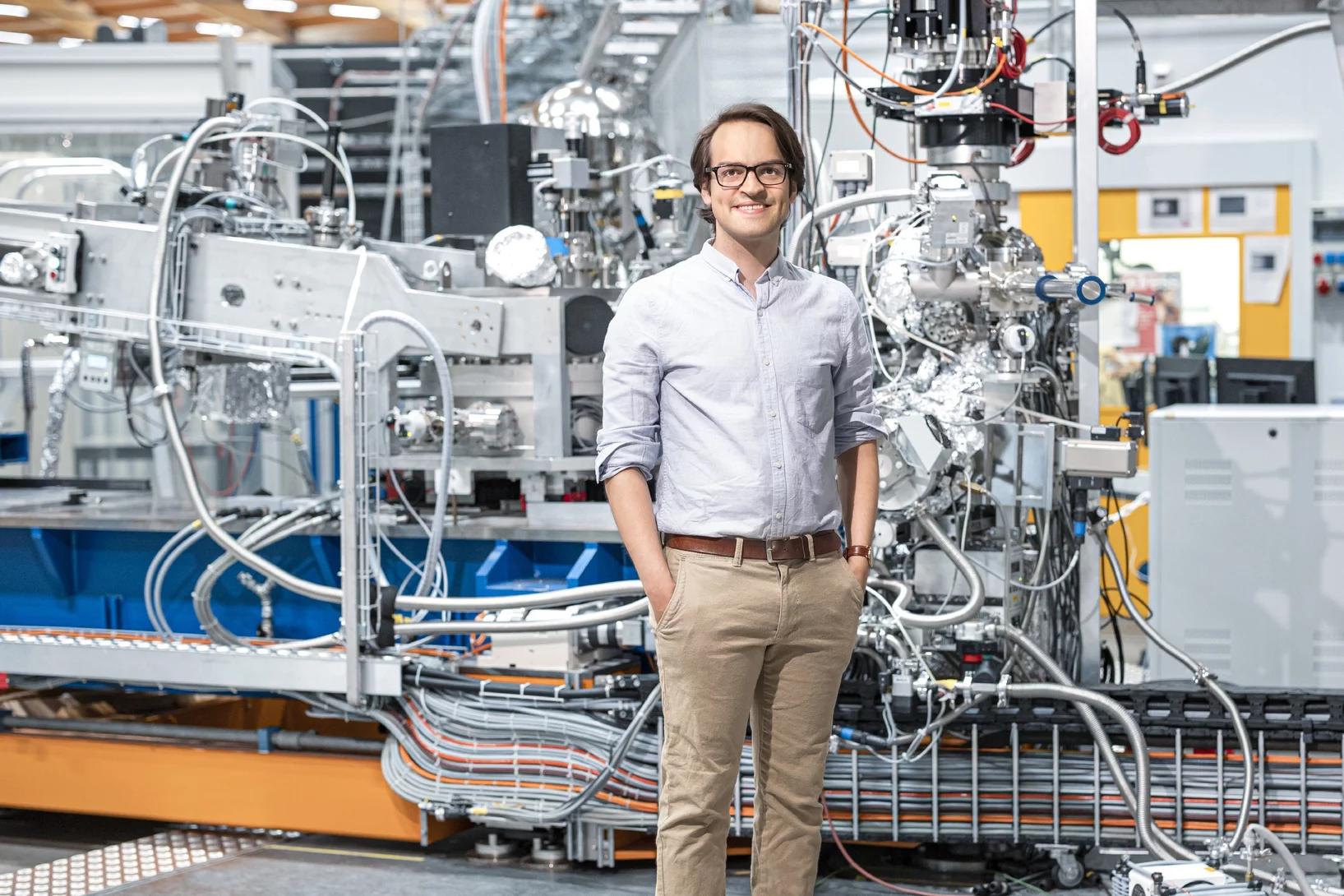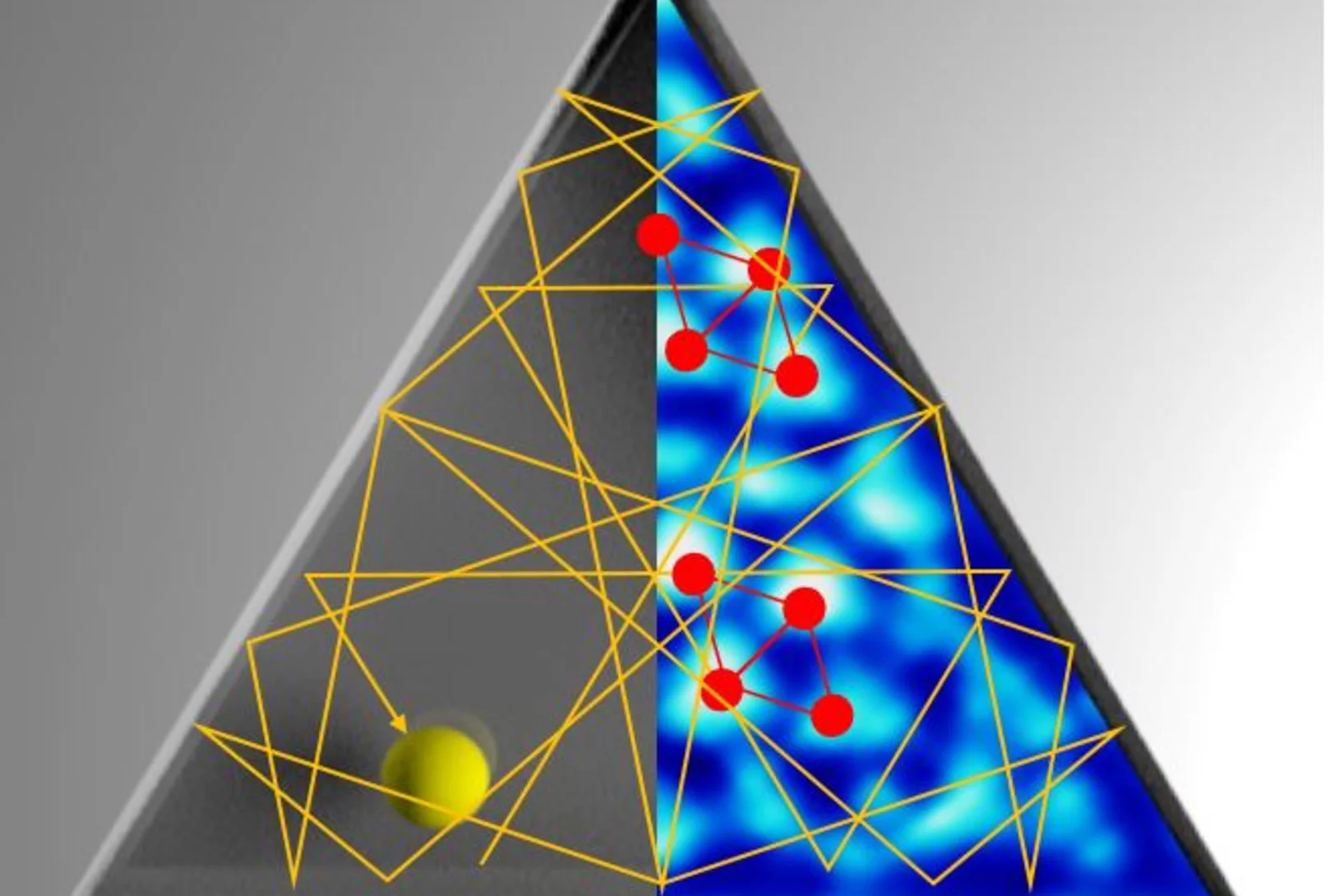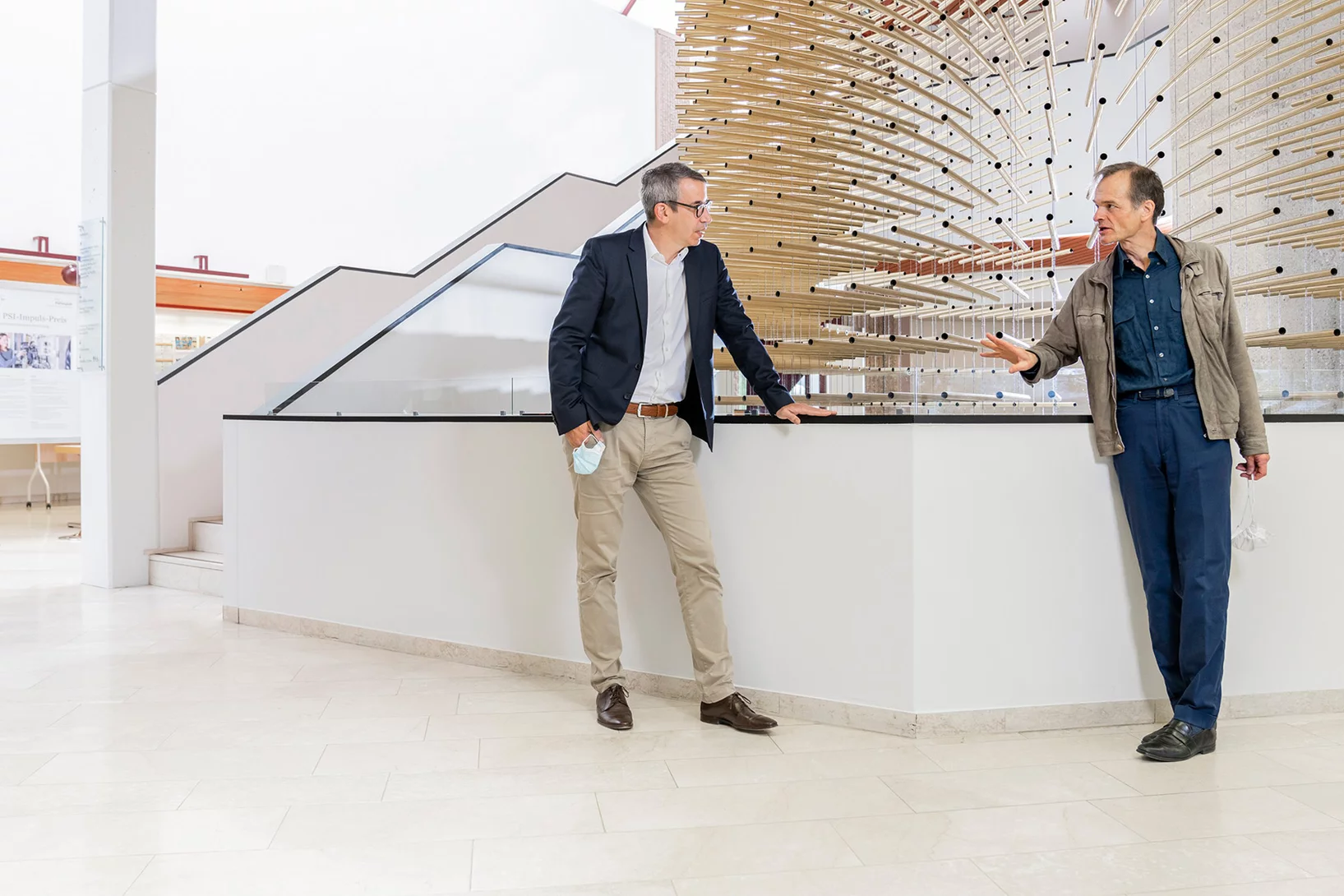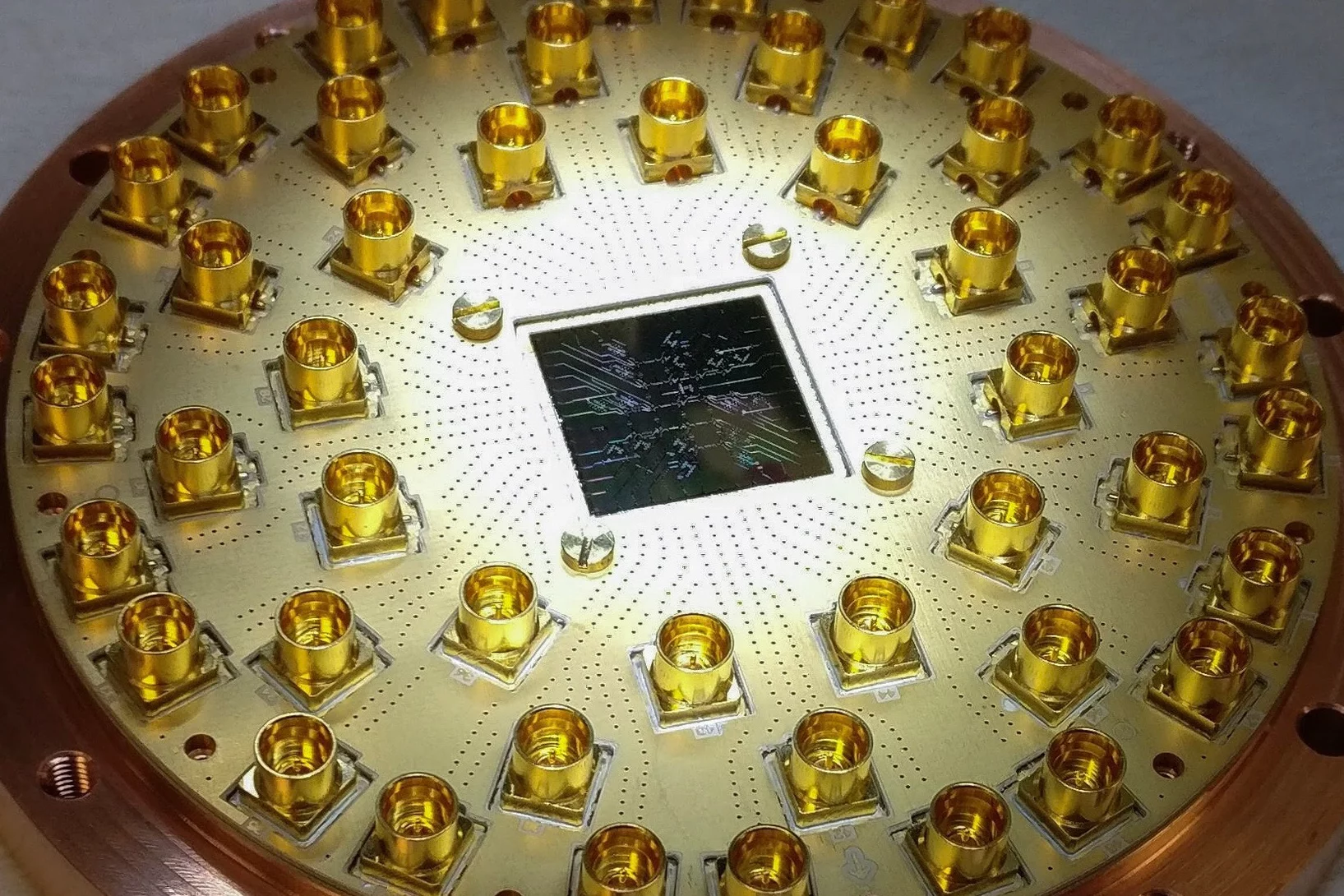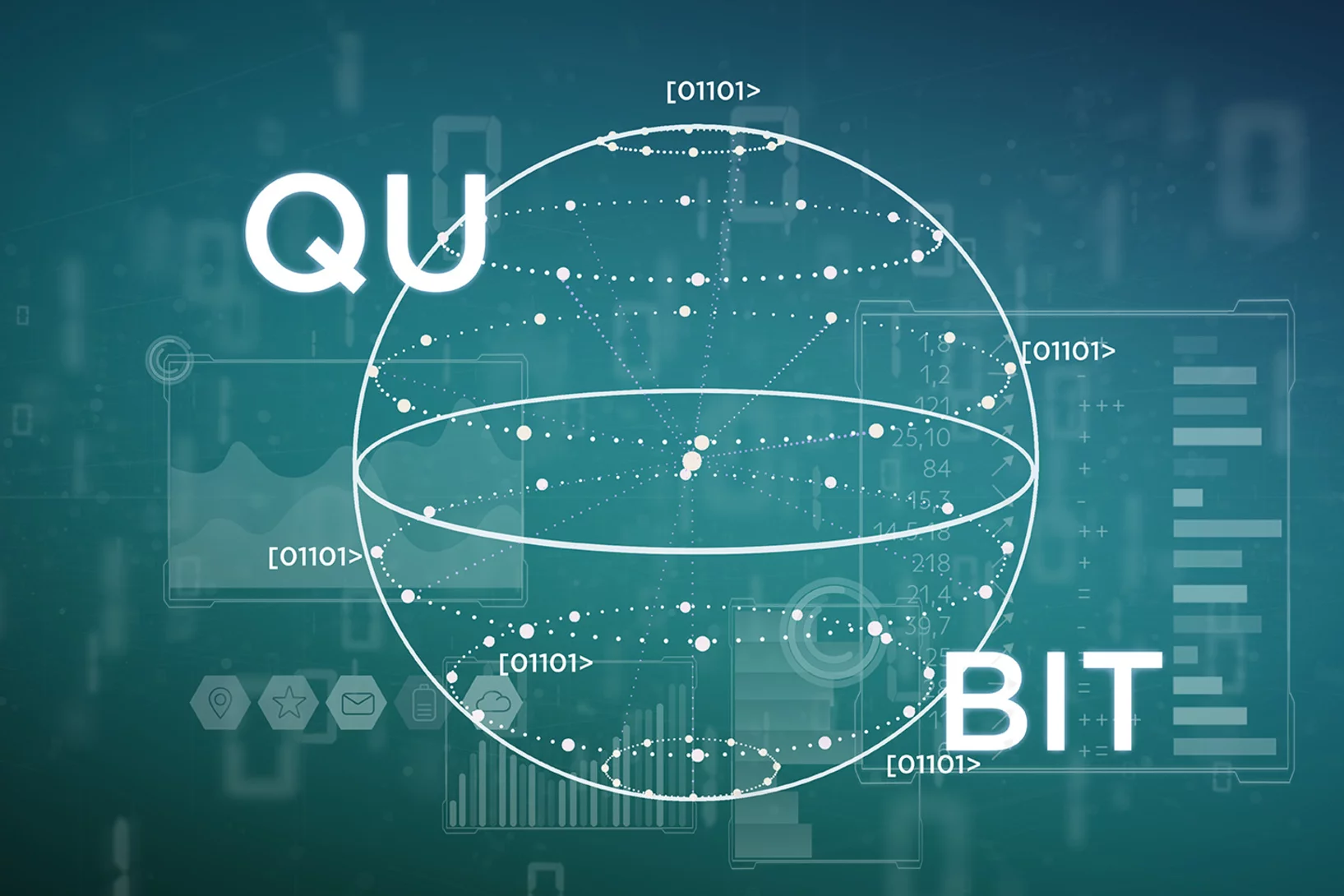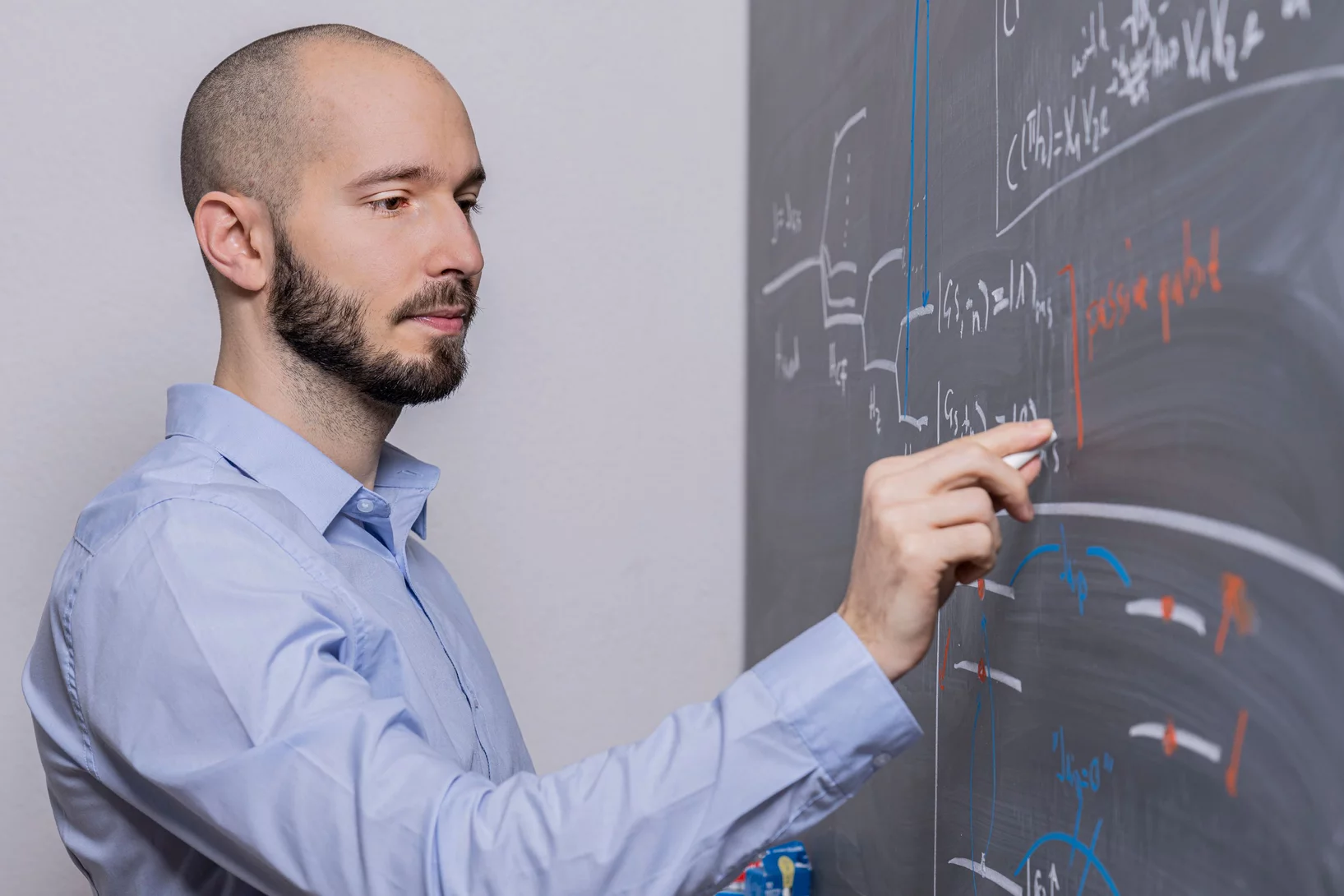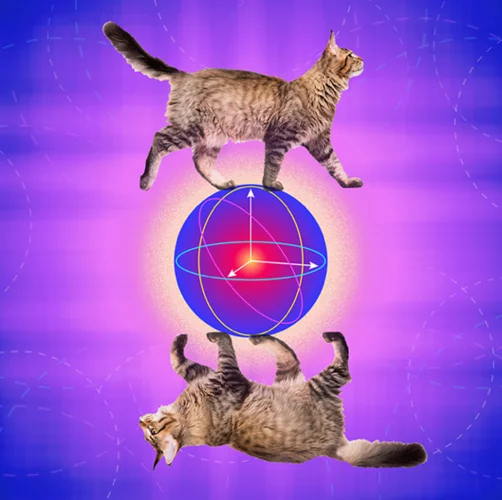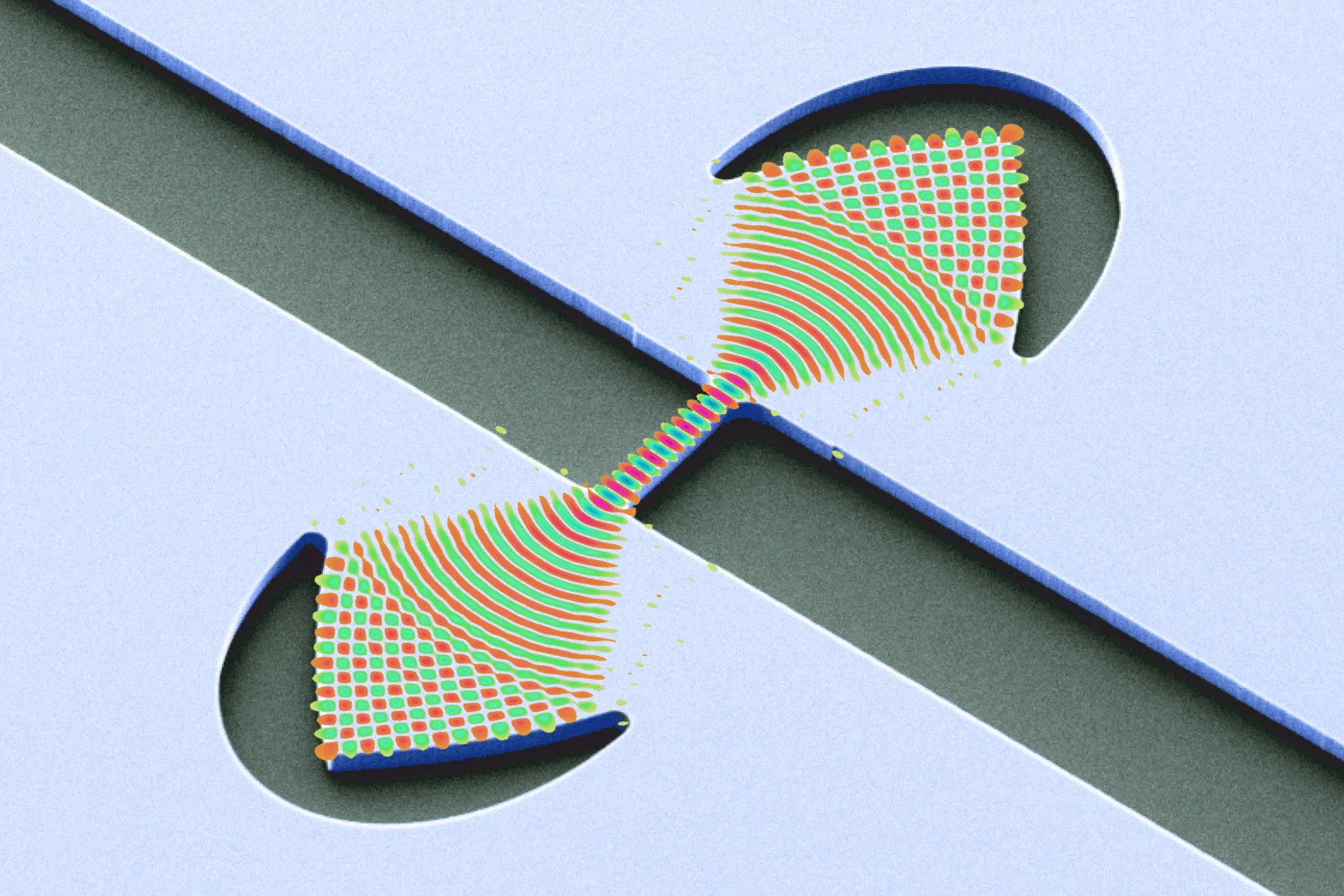Show filters
Topological defects determine evolution of charge density wave phase transition
Total scattering signals collected at SwissFEL reveal the role of topological defects when switching properties of a charge density wave material. The defect formation and dynamics after laser excitation reveals new insights into the functionality of quantum materials.
Peering into matter with ultrashort X-ray ripples
An all-X-ray transient grating experiment allows scientists to study the dynamics of quantum particles at the nanoscale.
Steering magnetic textures with electric fields
Neutrons reveal a new way to control magnetism at the nanoscale
Stabilising fleeting quantum states with light
X-rays from SwissFEL probe emergent properties of quantum materials
ESA Centre of Excellence opens in Switzerland
The opening ceremony of the “European Space Deep-Tech Innovation Centre” ESDI brought together distinguished guests.
Correcting quantum errors with neutral-atom architectures
Wenchao Xu talks about the benefits and challenges of building quantum computers from neutral atoms.
A new dimension of complexity for layered magnetic materials
X-rays reveal magnetic phenomena driven by interactions between the layers of a kagome ferromagnet
Unique quantum simulator opens door to new research
PSI physicists have teamed up with Google to build a new type of digital-analogue quantum simulator.
YBa1−𝑥Sr𝑥CuFeO5 layered perovskites: An attempt to explore the magnetic order beyond the paramagnetic-collinear-spiral triple point
Layered perovskites of general formula AA'CuFeO5 are characterized by the presence of spiral magnetic phases whose ordering temperatures 𝑇spiral can be tuned far beyond room temperature by introducing modest amounts of Cu/Fe chemical disorder in the crystal structure. This rare property makes these materials prominent candidates to host multiferroicity and magnetoelectric coupling at temperatures suitable for applications. Moreover, it has been proposed that the highest 𝑇spiral value that can be reached in this structural family ( ∼400 K) corresponds to a paramagnetic-collinear-spiral triple point with potential to show exotic physics. Since generating high amounts of Cu/Fe disorder is experimentally difficult, the phase diagram region beyond the triple point has been barely explored. To fill this gap we investigate here eleven YBa1−𝑥Sr𝑥CuFeO5 solid solutions (0≤𝑥≤1 ), where we replace Ba with Sr with the aim of enhancing the impact of the experimentally available Cu/Fe disorder. Using a combination of bulk magnetization measurements, synchrotron x-ray and neutron powder diffraction we show that the spiral state with 𝐤𝑠=(1/2,1/2,1/2±𝑞) is destabilized beyond a critical Sr content, being replaced by a fully antiferromagnetic state with ordering temperature 𝑇coll2≥𝑇spiral and propagation vector 𝐤𝑐2=(1/2,1/2,0). Interestingly, both 𝑇spiral and 𝑇coll2 increase with 𝑥 with comparable rates. This suggests a common, disorder-driven origin for both magnetic phases, consistent with theoretical predictions.
Exact solution of the classical and quantum Heisenberg mean field spin glasses
We solve and elucidate the physics of quantum Heisenberg spins glasses, which governs the local moments in randomly doped, strongly correlated materials.
New benchmark helps solve the hardest quantum problems
Quantum many-body problems involve the highly complicated process of predicting the behaviour of many interacting quantum particles. A newly developed benchmark helps to solve these problems.
ESA comes to Switzerland
The signing of a contract between the European Space Agency ESA and PSI marks the start of the European Space Deep-Tech Innovation Centre ESDI.
Kagome breaks the rules at record breaking temperatures
Discovery of quantum phenomenon at accessible temperatures could be useful for quantum technologies.
Orbitronics: new material property advances energy-efficient tech
Discovery of orbital angular momentum monopoles boosts the emerging field of orbitronics, an energy-efficient alternative to electronics.
Solid-state qubits: Forget about being clean, embrace mess
So says new recipe for dense arrays of qubits with long lifetimes.
Two projects launched to connect error-corrected qubits
Researchers at ETH Zurich and PSI are participating in two quantum computing projects that are being financed by the US research funding agency IARPA.
Using quantum computers already today
Analogue quantum computers make ultrafast chemical reactions observable.
Solving the unsolvable
PSI and ETH Zurich have founded the Quantum Computing Hub, where top researchers work together on concepts for quantum computers.
“If you’re in a certain position, you should step forward”
Kirsten Moselund heads the new Laboratory for Nano and Quantum Technologies. In this interview she discusses quantum research at PSI and how nanophotonics can assist with this.
Towards compact quantum computers, thanks to topology
In pursuit of particularly stable quantum bits, researchers have closely examined the electron distribution in two semiconductors.
Millions in funding for brain and quantum research
The European Research Council approves PSI projects for the development of a quantum computer and brain research worth about 5 million euros.
Semiconductors reach the quantum world
Boosted with superconductivity: Semiconductor technology can get a new twist by exploiting quantum effects in superconductors.
Exploring the practical benefits of exotic materials
Niels Schröter receives an award from the Swiss Physical Society (SPG).
Quantum billiards with correlated electrons
Our collaborators at the Jozef Stefan Institute – the leading author, Jan Ravnik, is now a PSI Fellow at LMN – report a study of the electron ordering in equilateral triangle structures via photoexcitation of the prototypical dichalcogenide 1T-TaS2.
"The goal is an experimental quantum computer in the canton of Aargau"
ETH Zurich and PSI are jointly opening a Quantum Computing Hub. An interview with Gabriel Aeppli and Christian Rüegg about the new research centre.
ETH Zurich and PSI found Quantum Computing Hub
ETH Zurich and the Paul Scherrer Institute PSI are opening a joint centre for the development of quantum computers. The aim is to advance the realisation of quantum computers based on both ion traps and superconducting devices.
A time-domain phase diagram of metastable quantum states
Our collaborators at the Jozef Stefan Institute – the leading author, Jan Ravnik, is now a PSI Fellow at LMN – report a ‘dynamical’ phase diagram of metastable quantum states generated via photoexcitation of the prototypical dichalcogenide material 1T-TaS2.
Water and quantum magnets share critical physics
At high pressure, liquid water and water vapour merge together – the phase boundary disappears. Researchers have now discovered a similar behaviour in a quantum magnet.
New blueprint for more stable quantum computers
PSI researchers have shown how faster and better defined quantum bits can be created. The central elements are magnetic atoms from the class of so-called rare-earth metals, selectively implanted into the crystal lattice of a material.
Scientists develop a new kind of qubit based on the concept of Schrödinger’s cat
Scientists in the Applied Physics department of Yale University – one of the leading authors, Alexander Grimm, has in the meantime relocated to PSI – have developed a new device that combines the Schrödinger’s cat concept of superposition (a physical system existing in two states at once) with the ability to fix some of the trickiest errors in a quantum computation.
First demonstration of a Germanium laser
Scientist at the Paul Scherrer Institut and ETH Zürich, with colleagues from CEA Grenoble, have demonstrated and characterized a technology that, for the first time, yields lasing from strained elemental Germanium. This achievement underlines PSI’s leading role in the development of Silicon-compatible laser light sources.
Now it's time for something new
If you make electronic components smaller, they unfortunately get hotter. Also, we will soon reach the limit of technically feasible miniaturisation. At PSI, Gabriel Aeppli and Christian Rüegg are working on fundamentally new, physical solutions for better computers and data storage devices.

